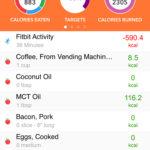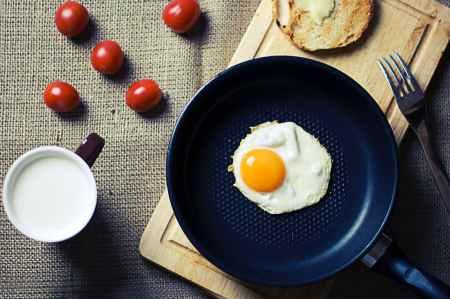First of all, some may ask, what in the world is Ketogenic Diet?
A keto or ketogenic diet is a low-carb High Fat diet, which enables the body to burn fats rather than glucose (derive from carbohydrates) for energy . It has many proven benefits for weight loss, health and sports.
That is rather a simple explanation of a keto diet, you can read a detailed one here.
Ketosis is a alternative form of energy which uses ketones which are produced from the breakdown of fats. All glucose stored in the body, which is supplied by carbs, must be used up before the process of ketosis can begin.
The more one is keto adapted, the less time it takes to re-enter ketosis. Carbohydrate intake has to be severely restricted to less than 50 grams per day. One cannot eat large amounts of carbohydrate and protein (yes, too much protein can kick you out of keto is), and expect to enter ketosis regardless of what the ketone meter reads.
Generally, benefits of Keto Diet include:
- Weight Loss
- Balance Blood Sugar
- Increased Mental focus
- Curb Hunger
- Control Insulin level
There are mainly three types of Ketogenic Diet:
Standard Keto - Low Carb, Medium Protein and High Fats porportion which you regularly maintain
Targeted Keto - Small amount of carbs just before a weight training or exerise.
Cyclical Keto - Carb up during weekend to recycle and resupply glycogen stores.
As the body is adjusting from a high carbohydrates dependent state to a low carb level, many people experience flu-like symptoms as they become fat adapted because of carbohydrate withdrawal, dehydration and lack of electrolytes like sodium and magnesium.
Symptoms include:
SUPPLEMENTATION DURING KETOGENIC DIET
Ketogenic diet is nutritious and provides what you need to be optimally healthy. Taking an iron-free multivitamin can help fill in the gaps unless you have Low iron levels or are a premenopausal woman, in which case an iron supplement may be helpful. Other supplements to consider include alpha lipoic acid, coenzyme Q10, L-carnitine, vitamin D, vitamin C, potassium bicarbonate, and magnesium.
For each meal, choose a protein source, like eggs and bacon for breakfast; and fatty meat for lunch.
More importantly, use a calorie-tracking app like Cronometer or read the nutrition facts label to determine how much of protein will meet your protein requirement for the meal or day. Next, check how much fat that amount of your protein source contains.


From there you can adjust your fat intake for the meal by using fatty additions like Avocado, butter, oils, seeds, and nuts (I personally use Macadamia nuts) to help get you closer to your goal.
Fill in the rest of your meal with the nonstarchy vegetable of your choice to meet your carbohydrate requirement.
Eggs are a good source of food for Keto Diet. One egg is only about 70 calories, with 6 grams of protein and 5 grams of fat.
Whole eggs (yolks included) are Low in calories, rich in protein. It also provide many valuable vitamins and minerals (Vitamin E, Vitamin K, Vitamin B6, Calcium and Zinc) especially choline and lutein which is important to support healthy nerve and muscle function.
Eggs contain Lutein and Zeaxanthin, Antioxidants which is beneficial for the eyes.
Many studies research have shown that lutein and zeaxanthin reduce the risk of chronic eye diseases, including age-related macular degeneration (AMD) and cataracts.
The yolk (once known in the nutrition world as the bad guy) is rich in vitamin D and cholesterol and it does not actually impact your blood cholesterol.

Up to 3 whole eggs per day are safe for healthy people without illness.
FOOD TO AVOID FOR KETOGENIC DIET
First of all, please avoid food such as:
Grains e.g. rice
Sugar - e.g. cakes, syrup
Fruit - especially bananas
Root Vegetables - e.g. potato
Below are some recommended food and food to eliminate while on a Ketogenic Diet
RECOMMENDED FOODS FOR LOW CARB / KETOGENIC DIET
- Meats: beef, chicken and pork, lamb and fish like salmon, sardines, tuna etc.
- Fats and oils: nuts and seeds, olive oil, sesame oil, ghee, and grass-fed butter.
- Eggs: free-range type.
- Dairy products including: cheeses, yogurt, and heavy creams.
- Low-carb vegetables including: spinach, kale, broccoli etc
- Fruits: low sugar type like blueberries, strawberries, raspberries, and avocados (in controlled amounts).
- Spices: no added sugars.
FOOD TO ELIMINATE ON KETOGENIC DIET
- Grains: White Rice,whole grains and breads, noodles, pastas
- Starches: potatoes, sweet potatoes
- Packaged Low-fat diet products
- Smoothies, sodas, fruit juices, ice cream, cookies, cakes, and sweets
- Unhealthy oils: processed vegetable oils
- Alcohols
- Artificial sweeteners
- Sweet Condiments
Check out my Weight Loss Journey on a Ketogenic DIet and Trim Tea
Also, read about why I eat butter everyday!
TOP 5 MAJOR KETOGENIC DIET MISTAKES
1 The first mistake is by not drinking enough water. You must at least drink 8-10 glasses of water a day.
2 Next is not having enough healthy fats. Take coconut oil, olive oil, fish oil, animal fats. About 70% of your calories should come from fats.
3 Too much protein: Taking Excess protein can kick you out of ketosis because your body will convert protein into glucose. About 20% of your calories should come from protein.
4 Hope for immediate result: It is a process. To make it sustainable, it has to be imbued into your lifestyle. Always remember that it takes time for your body to adjust to using fat for energy instead of carbs.
5 Lastly, having not enough macronutrients (Calcium, Potassium, Magnesium, Sodium): Be sure to eat your food like veggies and nuts to get the necessary daily nutrients.
Most of all, Keep Calm and Keto On!
